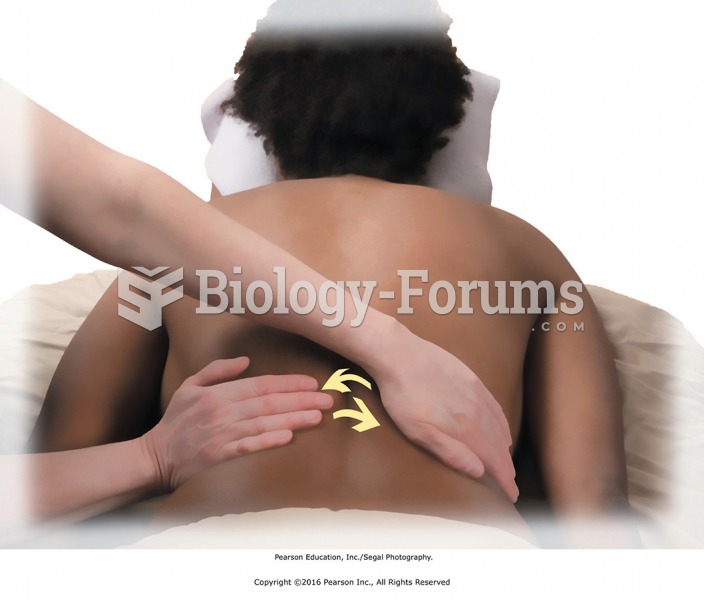|
|
|
On average, the stomach produces 2 L of hydrochloric acid per day.
More than 4.4billion prescriptions were dispensed within the United States in 2016.
Everyone has one nostril that is larger than the other.
More than 30% of American adults, and about 12% of children utilize health care approaches that were developed outside of conventional medicine.
Stevens-Johnson syndrome and Toxic Epidermal Necrolysis syndrome are life-threatening reactions that can result in death. Complications include permanent blindness, dry-eye syndrome, lung damage, photophobia, asthma, chronic obstructive pulmonary disease, permanent loss of nail beds, scarring of mucous membranes, arthritis, and chronic fatigue syndrome. Many patients' pores scar shut, causing them to retain heat.







